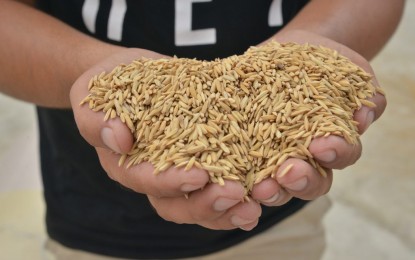
SCIENCE CITY OF MUÑOZ, Nueva Ecija – The National Seed Industry Council (NSIC) has approved the release of 15 new inbred rice varieties for commercial production.
Eight of the varieties were developed by the Philippine Rice Research Institute (PhilRice) here. Three of them are intended for irrigated ricelands — NSIC Rc 622, Rc 624, and Rc 626. The five others — NSIC Rc 638 SR, Rc 640 SR, Rc 642 SR, Rc 644 SR, and Rc 646 SR are special purpose pigmented non-glutinous varieties.
On the other hand, the seven other approved rice varieties were bred by the International Rice Research Institute (IRRI) in Los Banos, Laguna, five of which — NSIC Rc 628, Rc 630, Rc 632, Rc 634, and Rc 636) are for irrigated lowlands. One is a zinc-biofortified (Rc 648) variety, while the other is for rainfed lowland (Rc 650).
Dr. Oliver E. Manangkil, Department of Agriculture (DA)-PhilRice senior plant breeder, said farmers have more options with the new varieties depending on their farm’s conditions.
He said the new rice varieties will be introduced to farmers through techno-demo farms under the various extension programs of DA-PhilRice and its branch stations, adding that in previous years, they had also introduced several new rice varieties to farmers through their NextGen PLUS project.
The project, he added, is a collaborative effort between PhilRice, IRRI, University of the Philippines-Los Baños, and the DA Regional Field Offices under the Food Self Sufficiency Program of the DA National Rice Program, and funded by the DA-Bureau of Agricultural Research.
Under the project, multi-location trials were done in all major irrigated and rainfed rice-growing regions under the supervision of DA-regional field offices, and state colleges and universities across the country, which set up adaptation trials with farmer-partners in their areas.
Manangkil said they were able to introduce newly-released varieties to farmers, through NextGen, even in far-flung areas where they did participatory farmer performance trials and validation.